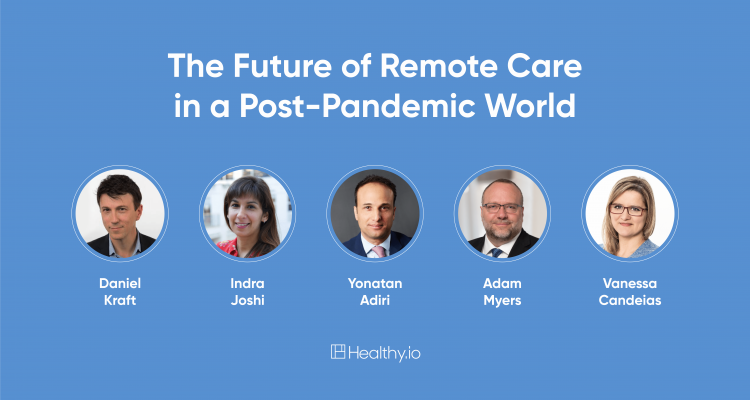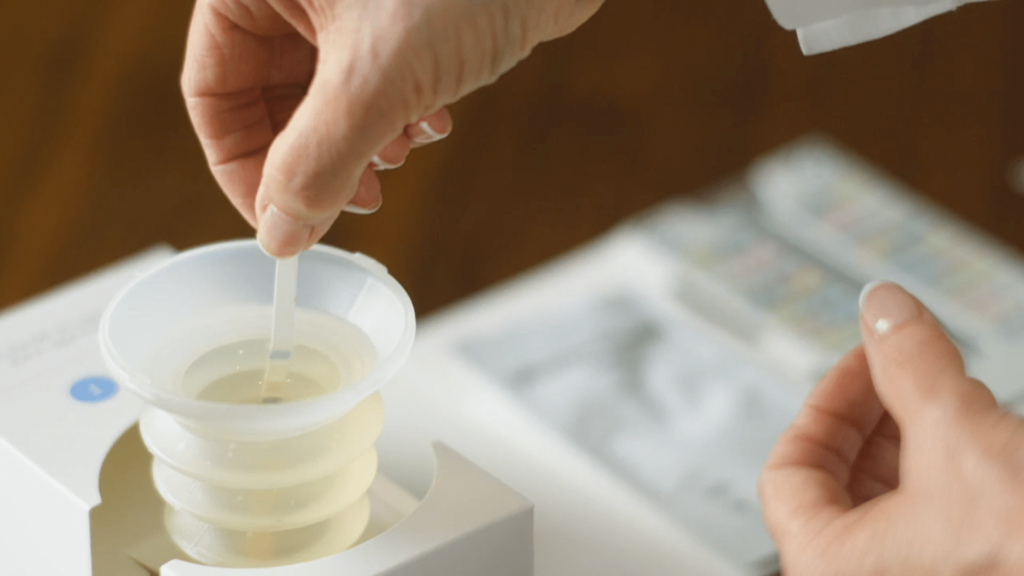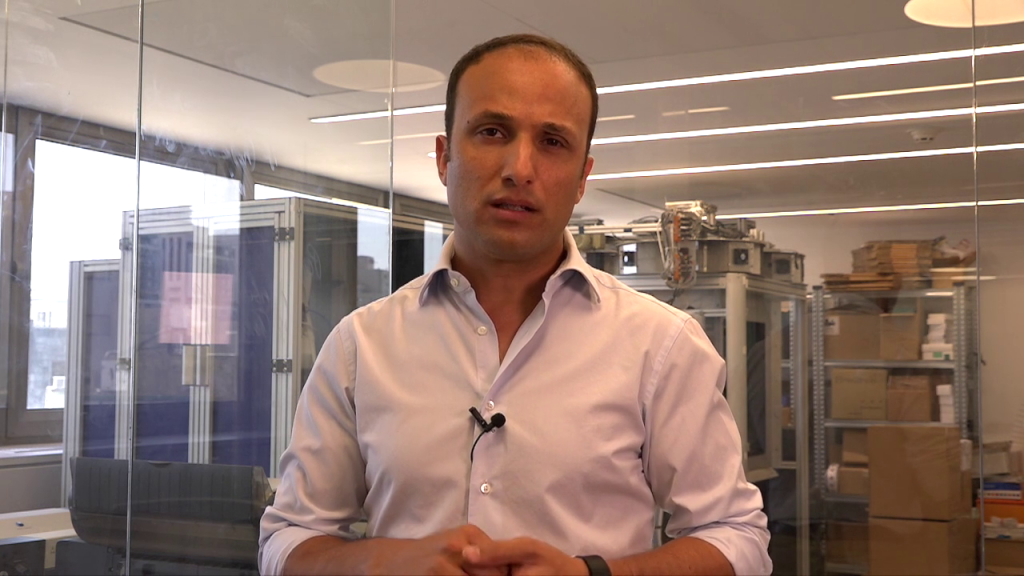One year into the COVID-19 pandemic, remote care has become an indispensable tool for clinicians and patients around the world. But its effectiveness is only as good as the patient at the center of it all. In our new short film, we explore the future of remote care in a post-pandemic world through the eyes of an international group of experts.
At the height of lockdown, we spoke with clinicians and innovators across four countries to hear what they’ve learned from their work at the nexus of healthcare and technology. In the film, you’ll hear their insights on the lasting impact of the pandemic, the challenges and opportunities for remote care, and how technology can be used to engage and empower patients on their own health journey. Here are just some of those insights.
Sticking the Landing
Daniel Kraft, MD, is a physician-scientist and innovator, and the Chair of Exponential Medicine at Singularity University. He’s long been a vocal proponent of healthcare innovation. In light of the recent rapid developments, his dreams are finally becoming reality. “Just like Sputnik sparked the space age, COVID is really sparking a health age,” he said. “And a big part of that is an acceleration towards remote and virtual care, from hospital to home—or hospital to homespital.”
The experts all agreed that the healthcare landscape had been forever changed. But in order to realize technology’s full potential, healthcare systems and companies cannot rest on their laurels. Dr. Indra Joshi, Director of AI at NHSX, is in charge of implementing AI and other digital health initiatives in the UK’s National Health Service—one of the world’s largest healthcare organizations. She singled out trust as the key element that will ensure that remote care is here to stay. Companies will have to work hard to establish trust with patients and clinicians, especially when asking them to trust cutting edge remote-care devices and A.I.-driven algorithms. “First, you need to build trust in that product,” she said. “And trust quite often comes from making sure it’s been built in the right way. So showing the evidence, showing that you’ve met all the industry and the regulatory standards.”
Meeting Patients Where They Are
The widespread use of remote care in the face of the pandemic revealed that it has something to offer each and every patient, far beyond its traditional use as a means to help conduct remote appointments for patients in rural locations. Our film explores how remote care can facilitate a new and highly adaptable form of patient-centric healthcare. “How do we deliver care to those in need at their speed of life?” asked Healthy.io founder and CEO, Yonatan Adiri. “Not asking them to change their speed of life to fit to that of the healthcare system, which is often slow and not adept in informing and adapting to the patient’s needs.”
In 2021 and beyond, our experts agree, companies will focus on building technology and products that seamlessly integrate into the patients’ life flow, without disrupting it, and engage them to take ownership of their own health.
Adam Myers, MD is Chief of Population Health at Cleveland Clinic, long considered one of the finest medical centers in the United States. He told us that he thinks patient engagement comes when a patient feels understood. “I think we as clinicians need to seek to understand what patients need and desire rather than assuming that we do,” he said. “That will require significant data and analytics. It will require algorithms to automate certain functions at scale. But it also involves defining desirable outcomes from the patient’s perspective rather than our own.”
Quantum Leaps
When practiced at scale, patient-centric care powered by cutting edge technology can lead to a health ecosystem that “integrates individuals and their needs when they’re healthy,” in the words of Vanessa Candeias, the former Head of Global Health and Healthcare at the World Economic Forum. “And then when they become sick, they make sure that they provide for high quality care at the point when they need it and in a way that they can afford.”
The story of the coronavirus is unfortunately still unfolding. But as medical teams and patients continue to fight the disease, it is important to talk about what we’ve learned so far and what it all means for the future of healthcare—and especially remote care. As Yonatan Adiri noted in our film, “human history teaches us that it’s crises that allow for quantum leaps in science.” We invite you to watch The Future of Remote Care in a Post-Pandemic World and to join the conversation.






